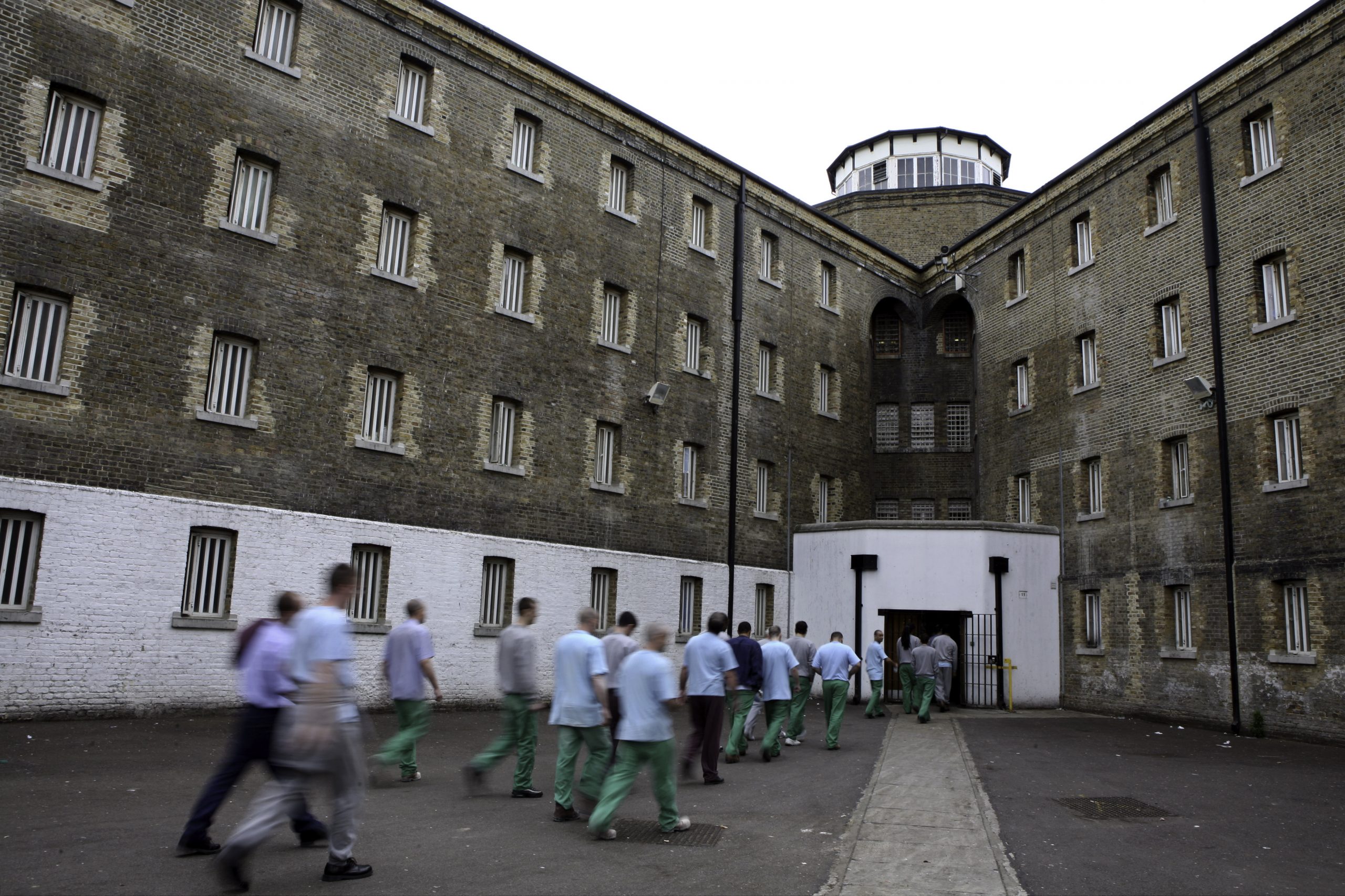PROFILE: Chris Grayling, made history recently as the first non-lawyer to be appointed Lord Chancellor. So far he has not so far disappointed, writes Matt Evans.
The rightwing, populist justice secretary who is a keen fan of American justice today revealed his plans to close seven prisons and create one brand spanking new super-prison. Whatever the ‘rehabilitation revolution’ rhetoric, his deepest desire is to lock up more prisoners for longer periods of time – if only he had the money and Osbourne would stop stagnating the economy year on year. As he made clear: ‘Criminals should be in no doubt they will be punished for their crimes, with those who commit the most serious offences receiving the most severe sentences.’
Those that thought a lack of legal training might prevent him from exhibiting such insightful analysis must be about ready to apologise by now. His proposals about householders being able to use ‘use “disproportionate force”, against buglars without legal reprisals also showed that the legal profession’s loss was marketing’s gain (Grayling, prior to becoming an MP, was a marketing director at an international communications firm).
Grayling may look disconcertingly like a baked bean but he has been described as the latest Tory ‘attack dog’ (albeit one with the usual lemming tendencies) – see the way he jumped on the Abu Qatada deportation debacle in order to call for (wait for it) a ‘review’ of European human rights laws. Like almost all Tories he now seems to regard this body of law and rights as a wholly pernicious and unjustifiable obstruction to his ability to do whatever the hell he likes regardless of quaint concepts such as justice or the rule of law.
The opportunity to put the boot into prisoners, judges and Europe (a heady trio of populist hate figures) was also too good to pass up when he announced the government is kicking the European court of human rights‘ judgment against the UK on votes for prisoners into the deepest of the political long grass.
His new bill on prisoners’ votes offers many options, including the no-votes status quo. It will be considered in detail by a parliamentary committee before a final version comes before MPs. So the chances of any of this getting to the statute book before the 2015 general election are remote.
Payment by results
Yesterday he set out plans, in the Transforming Rehabilitation consultation, for the wholesale outsourcing of the probation service. Under these proposals the public probation service would be left to deal with a ‘core role’ of focusing on the most dangerous and high-risk offenders and also to carry on writing pre-sentence reports (presumably in case SERCO and their ilk kept confusing the role of such reports, which is the objective assessment of risk and whether someone really needs to go to prison with their main role as detention cheerleaders). Private companies and the voluntary sector organisations will be invited to bid for the overwhelming majority of probation work on a payment by results basis. Mandatory rehabilitation programmes will also be introduced for the 46,000 or so short-sentenced prisoners (serving 12 months or less) as a condition of their release. Full implementation is envisaged to take place by spring 2015, just before the likely date of the next general election.
Grayling has already given himself a handy get out clause – admitting his plans will not lead to an overnight reduction in stubbornly high reoffending rates – rather he hopes it might lead to a ‘steady year-by-year decline’.
So what of Mr Grayling himself, does his background and character suggest a man who can be trusted to oversee what on any view represents a new frontier in the boundary between public and private sectors in criminal justice and affecting more than 240,000 supervisees?
In 2007, prior to his history-busting appointment as Justice Secretary, he was Shadow Work and Pensions Secretary. During his tenure he claimed that ‘billions of pounds are being lost to fraud” in the benefits system’. This was based on figures which showed that £2.5 billion was lost due to fraud and error in the system. It turned out that the amount lost to fraud alone was less than a billion. Grayling never apologised for this distortion of the truth and remained relentless in his attempts to portray benefit claimants as criminals. A press release issued by the DWP in 2011 led to lurid and fictional headlines claiming that 75% of people on sickness benefits were ‘skiving’.
Hopelessly full of shit
In 2009 when Shadow Home Secretary, he visited the Moss Side area of Manchester, and claimed the area was in a state of urban war, comparing it to the fictional depiction of Baltimore in television’s The Wire. Baltimore has a murder rate around seven times higher than Manchester. Interestingly the creator of the Wire has said that anyone basing penal policy around the programme would, in his words, be ‘hopelessly full of shit’.
Grayling did not fare that well in the expenses row either. At one point Grayling claimed for two mortgages, one on his large family home in Surrey, just a short commuter trip from London, and another on his posh flat in Pimlico (see the Daily Telegraph). Grayling also owns two buy to let properties within the M25. In 2005 he carried out extensive renovations on his Pimlico flat and to pay for them claimed almost close to the maximum annual allowance for MPs. This wasn’t quite enough however and a year later he was back claiming thousands more for work done the previous year. Had he not spread the cost over two years he would have been unable to claim the full amount. He explained away this discrepancy by pleading that his ‘decorator has been very ill and didn’t invoice me until now’.
Recidivist tendencies
Grayling has also shown worrying recidivist tendencies in the use of statistics to back up his right wing agenda. In 2010 he claimed that violent crime had soared under the Labour Government. Grayling had deliberately chosen to ignore the change in the way crime had been recorded which led to a furious rebuke from the UK National Statistics Authority. The chairman of the authority, Sir Michael Scholar, was forced to write to Grayling accusing him of misleading the public and risking damage to public trust in official statistics. Not one to seemingly learn his lesson he was at it again a year later. He was among a group of ministers rebuked by the statistics watchdog for rushing out figures showing 371,000 immigrants were on benefits with insufficient regard for ‘weaknesses’ in the data. Despite being ‘highly vulnerable to misinterpretation’, the claims were given to the media without the safeguards demanded for official statistics, Sir Michael Scholar said.
Bigot of the year
His most famous gaffe came a month later. Grayling was recorded saying he supported the right of B&B owners to discriminate against gay and lesbian couples. This drew condemnation from across the political spectrum with calls for his resignation. As ever Grayling attempted to squirm his way out of the scandal claiming: ‘I am sorry if what I said gave the wrong impression, I certainly didn’t intend to offend anyone… I voted for gay rights.’ If by supporting gay rights he actually meant (as Theyworkforyou.com reveals) voting against the initial legislation to establish civil partnerships, against fertility treatment for gay couples and being absent from the vote on repealing the notorious Section 28 then I suppose he had a point. His championing of gay rights seemed to fall on deaf ears and he was named ‘Bigot of the year’ by Stonewall.
By the time of his appointment as Employment Minister, he was already showing how his probation service privatisation plans might play out. They seem to bear alarming similarities with the disastrous model inflicted on long term unemployed people. It emerged that amongst the private companies given lucrative contracts to carry out the flagship ‘Work Programme’ Deloitte Ingeous were listed as preferred bidders by Grayling and went on to win a contract worth almost a billion pounds. Grayling had previously received a donation worth £27,978 from Deloitte. Labour Minister John Robertson claimed it could be a breach of the ministerial code.
I also doubt SERCO and G4S are particularly concerned over the ‘payment by results’ conditions to any contracts awarded if Grayling’s stint in employment is anything to go by. Despite approaching a billion pounds being handed to welfare to work companies like A4E, long term unemployment has continued to rise even whilst other measures of unemployment have (allegedly) fallen.
When the move to allow MPs to take on the Lord Chancellor role – and title – was approved it was only after an epic struggle between the Commons and Lords. Ministers argued that the justice role was ‘a different job, with different characteristics requiring different qualities’ and should be open to a wider range of candidates. I remain oblivious to what Grayling’s qualities might actually be- but they are certainly not, in my humble opinion, those fit to hold one of the most important offices in government.






